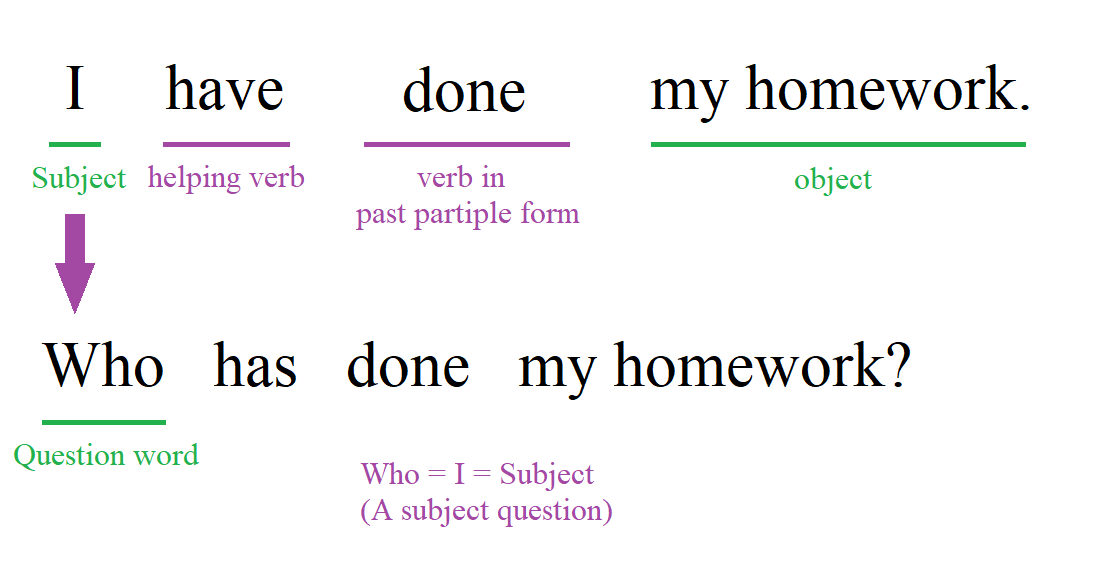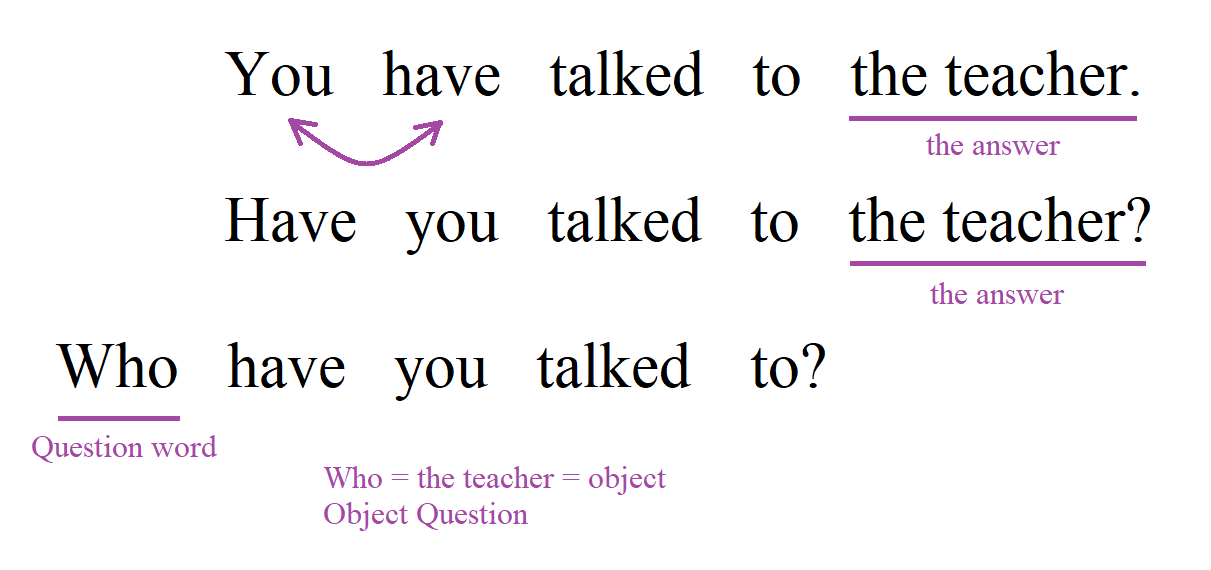How to Form a Question in Present Perfect and Various Time Words Used in Present Perfect
- The present perfect tense connects the past and the present with actions or situations that have relevance to the current moment.
- Questions in the present perfect are formed with Have/Has + Subject + Past Participle of the verb.
- 5W1H questions in the present perfect are formed with Question word ("What", "When", etc.) + "have"/"has" + past participle form of verb? or, Question word ("What", "When", etc.) + "have"/"has" + subject + past participle form of verb?
- Time words like "since," "for," "yet," "never," and "before" help specify the time frame or duration in present perfect tense sentences.
Understanding how to form questions in the present perfect tense and the use of various time words is crucial for expressing actions or situations that span from the past to the present. This lesson explores the structure of present perfect questions and the role of specific time expressions that are commonly used.
Forming Yes-No Questions in Present Perfect Tense
To form a Yes-or-No question in the present perfect tense, use the formula: "Have"/"Has" + subject + past participle form of verb. This tense is used when the action has an impact on the present moment or is still relevant.
Examples:
-
Have you finished your homework?
Here, "Have" + subject ("you") + past participle ("finished") form of verb + object ("your homework")?
-
Has she ever been to France?
"Has" + subject ("she") + past participle of verb ("been") + other words ("to France")?
Forming 5W1H Questions in Present Perfect Tense
For 5W1H questions, try to think about whether you want to make a subject question or an object questions.
Subject question
The question word is acting as the subject of the sentence.
Grammar Rule: Question word ("What", "When", etc.) + "have"/"has" + past participle form of verb?

Object question
The question word is acting as the object of the sentence.
Grammar Rule: Question word ("What", "When", etc.) + "have"/"has" + subject + past participle form of verb?

Examples:
-
What have you done today?
Question word ("What") + "have" + subject ("you") + past participle form of verb ("done")?
-
Where has she traveled this year?
Question word ("Where") + "has" + subject ("she") + past participle form of verb ("traveled")?
-
How long have they been here?
Question words ("How long") + "have" + subject ("they") + past participle form of verb ("been")?
Using Time Words with Present Perfect
Time words such as "since," "for," "yet," "never," "ever," and "before" are important in present perfect sentences to indicate the time frame or duration of an action.
Time words are placed differently within the sentence based on their type.
- "Since" indicates the start time.
- "For" indicates the duration.
- "Yet" is often used in questions or negative sentences to suggest that something hasn't happened up to now.
- "Never" and "ever" speak about experience. "Never" is a stronger form of "not". "Ever" is used in a question sentence.
- "Before" indicates any time prior to now.
- "In" indicates a length of time, and it's used in a negative sentence.
Examples:
-
Have you ever seen a shooting star?
"Ever" is used to ask about experiences at any point up to now.
-
Has it rained since you arrived?
"Since" indicates a specific point in time from the past to the present.
-
Have they finished the project yet?
"Yet" is used in a question to ask if something expected has occurred up to the present.
-
I have never driven a car.
"Never" is a stronger form of "not".
-
My mom has lived in Canada for 20 years.
"For" is used to describe a duration of time.
-
I haven't eaten anything in 2 days.
"In" is used to describe a duration of time in a negative sentence.
和AI英語導師一起練習這個主題
AI英語導師會教你文法,並以對話的形式和你一起練習。 另外,還有 100 多個有關該主題的練習題來鞏固您的理解。
在您的手機或平板電腦上免費試用 ALULA








你對這節課有任何問題嗎?請在下面的評論區提問。